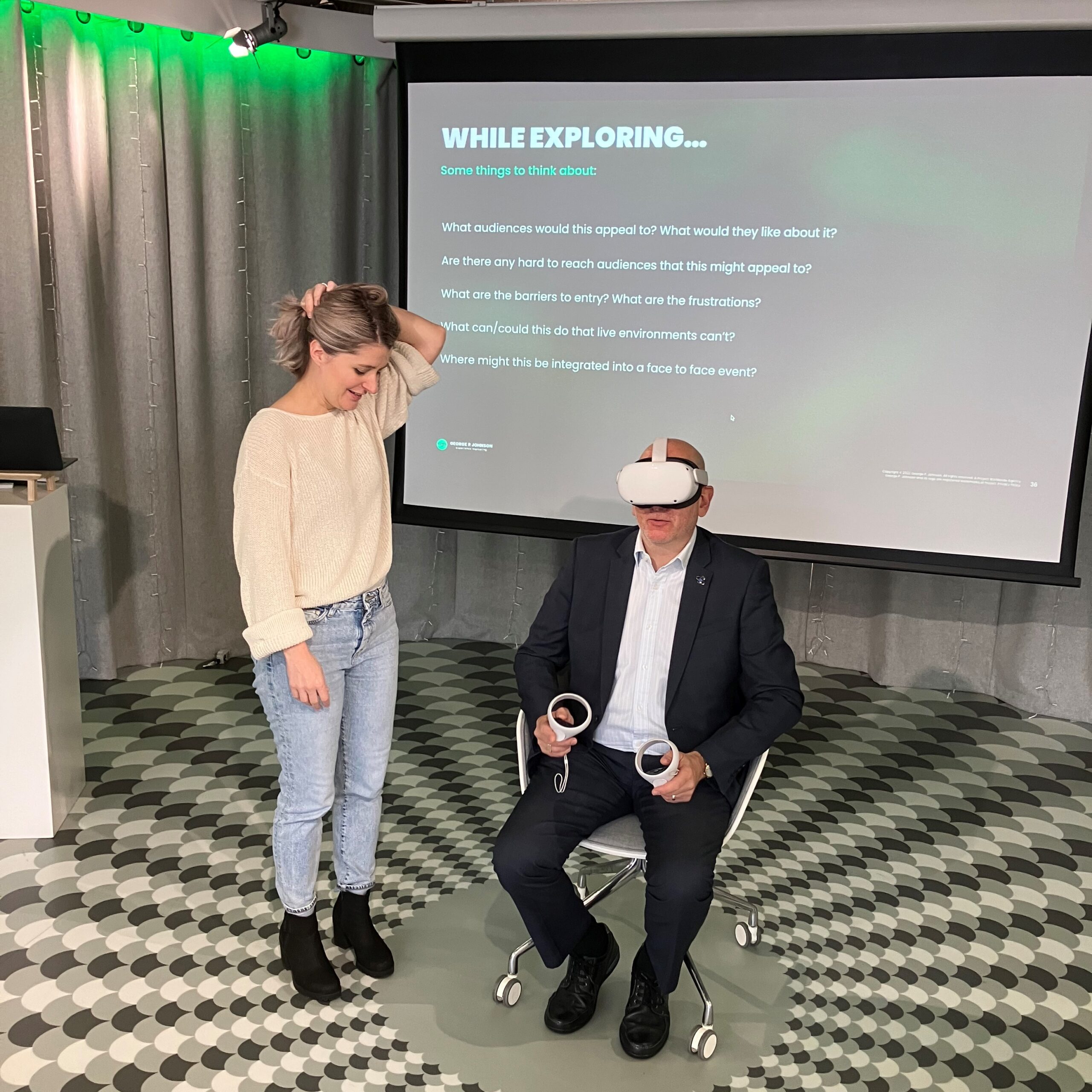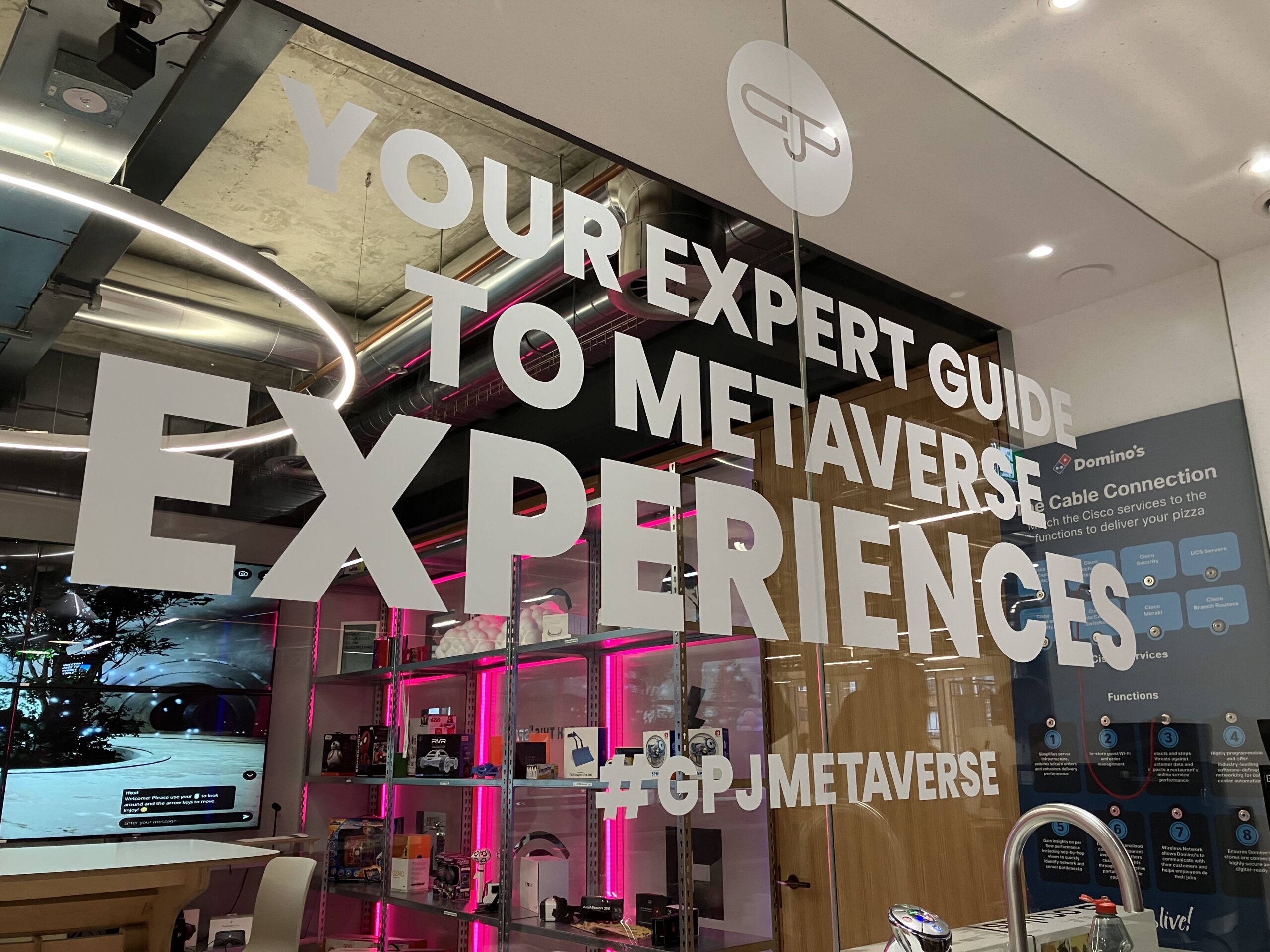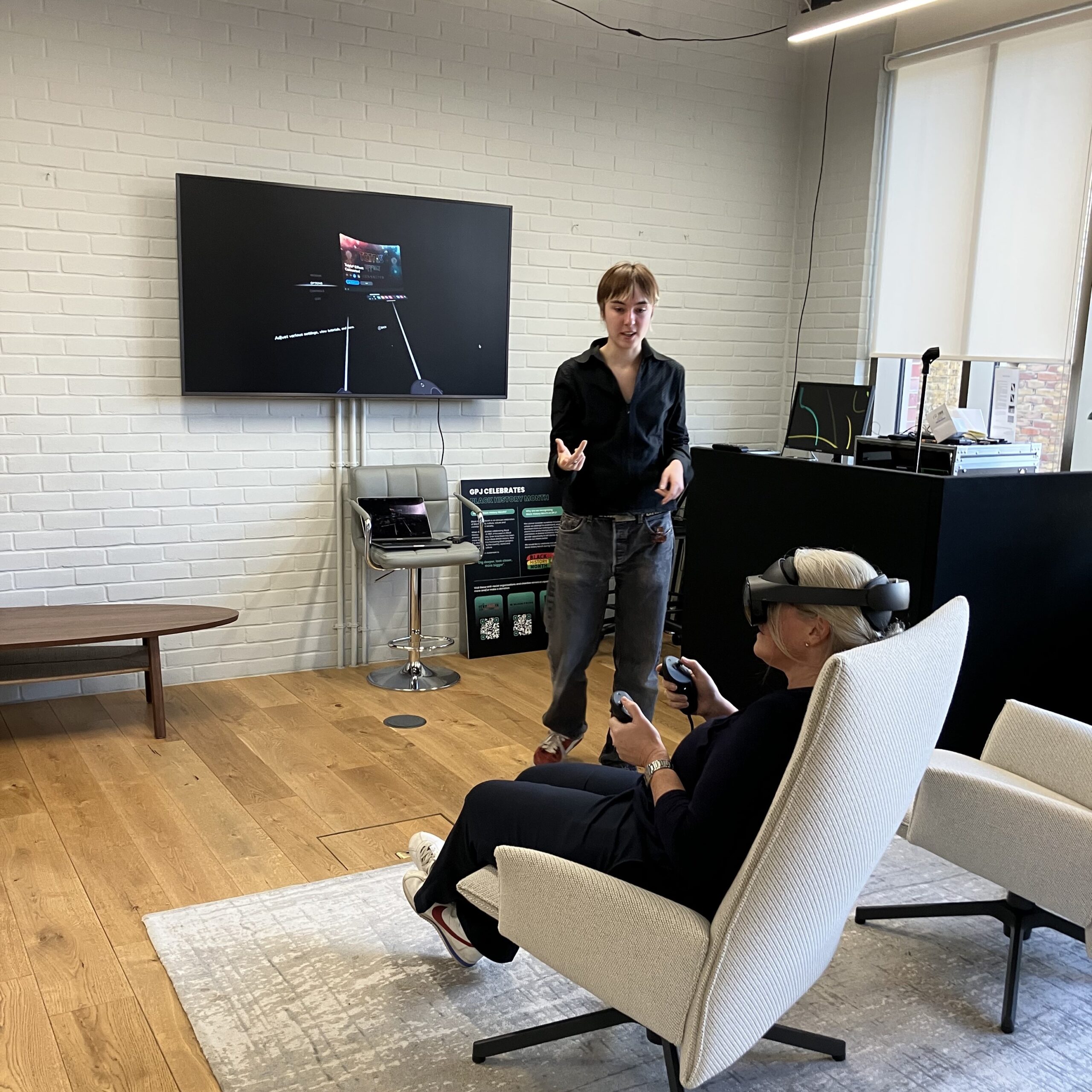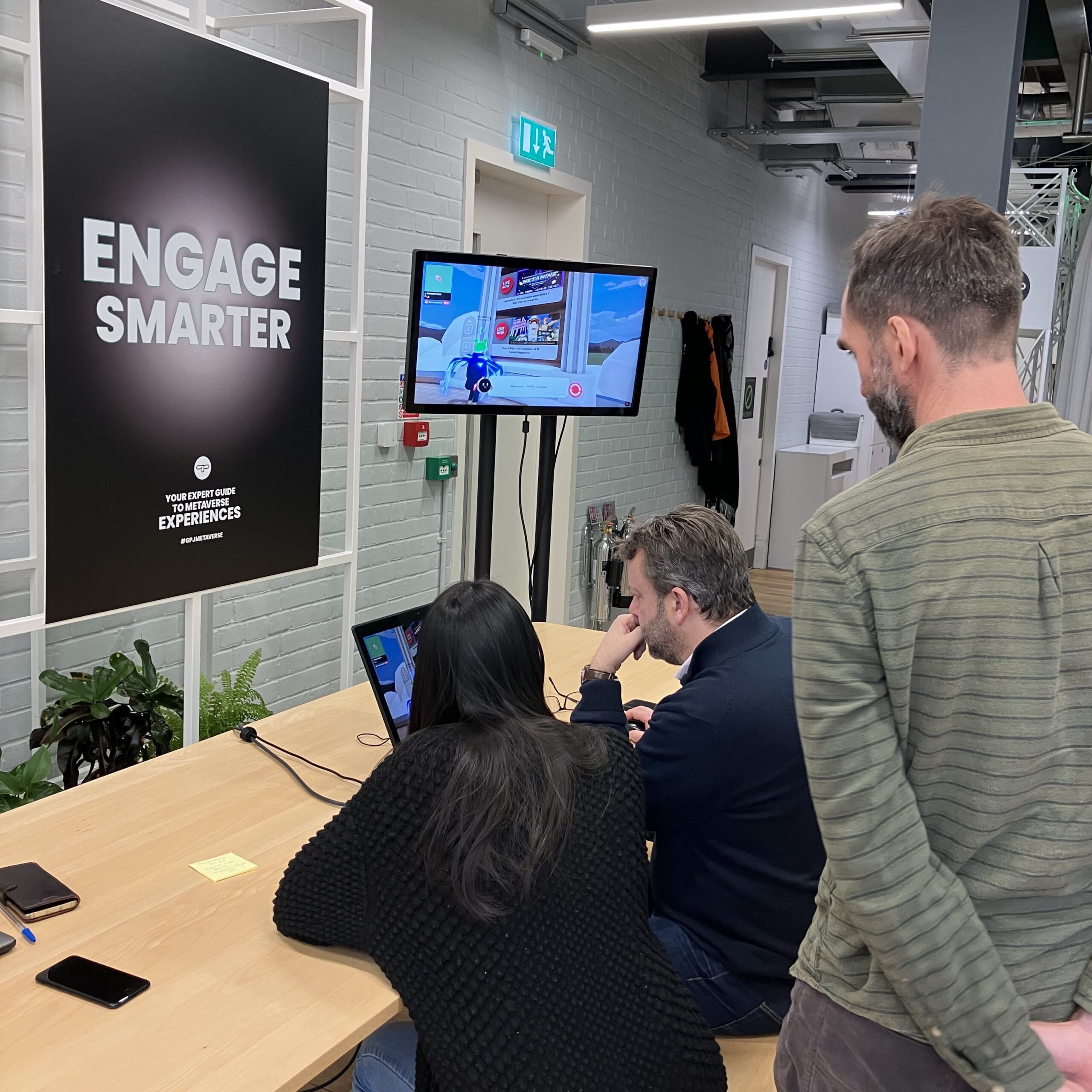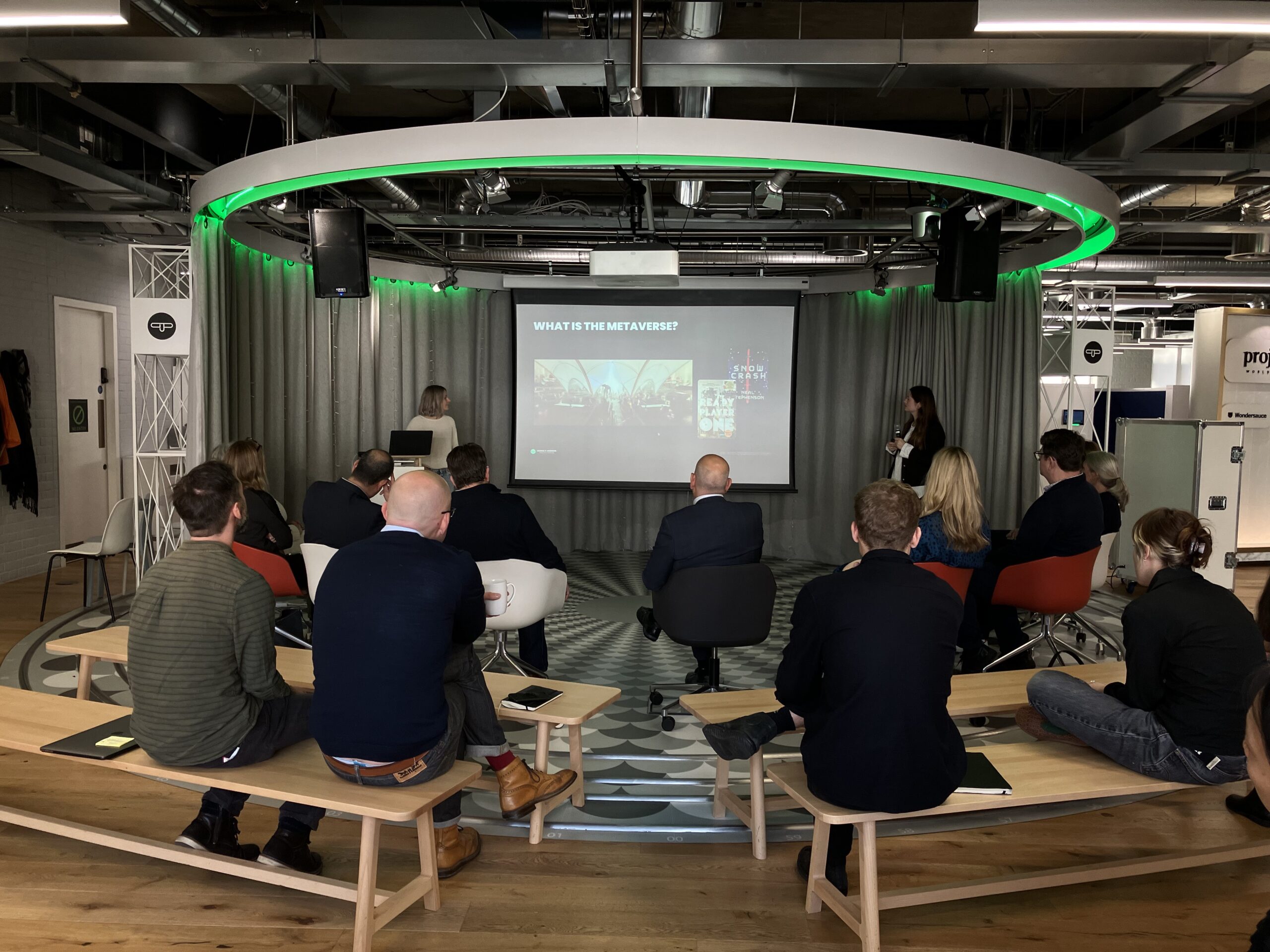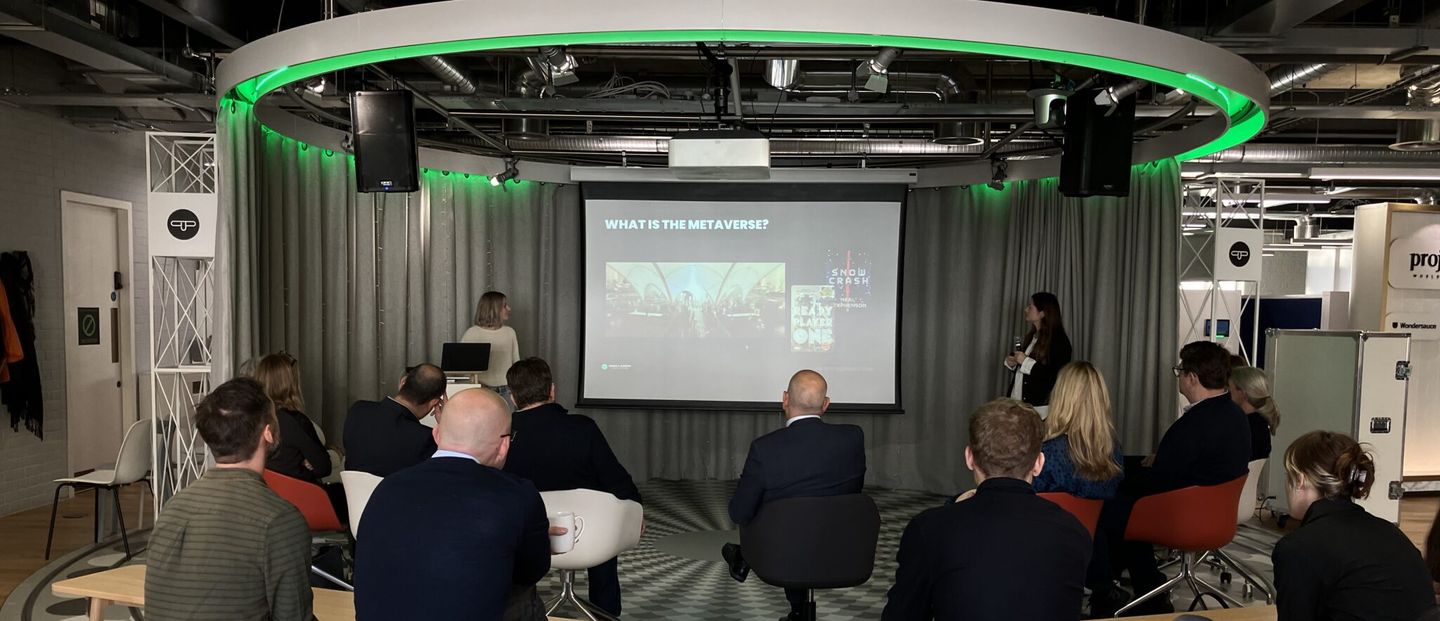Written by Kerstin Twatchmann – Strategy Director at George P. Johnson.
The metaverse has felt inescapable this year, with everyone from big tech to governments weighing in on its importance, its irrelevance or its dangers. There has been a fair amount of backlash against the term too, which isn’t surprising; the metaverse as a term is a tricky one. A lot of what’s exciting about it doesn’t exist yet, and a lot of the definitions of it are indistinguishable from a massively multiplayer online game, something which has existed for years. So how much should we be engaging with the idea of a metaverse? And what exactly can it do for businesses using experiential?
At GPJ, we’re big believers in staying curious when it comes to new technology. Our London office is even home to a dedicated technology LAB, where we experiment with everything from VR headsets to drones. We like to view technology not only through a futurist lens, but by being practical about its applications today. As experiential marketers, our interest in the metaverse is less about trying to predict the future of the internet, and more about the explosion of creative and immersive virtual event venues which are springing up under this umbrella term.
Metaverse experiences at GPJ
One of the ways we’ve been exploring the potential of the metaverse for events is by running metaverse workshops with clients who are interested in this rapidly evolving space.

Recently, we hosted our long-term client IBM for a hands-on morning of demos, discussion and exploration. We looked at how other brands are using metaverse spaces, and we discussed the applications of the technology that we believe are the most exciting, both today and in the future. No web3 themed event would be complete without an NFT keepsake, so we created our own ‘GPJ in the metaverse passport’, a dynamic NFT which refreshed when the day was complete.
IBM are of course responsible for some of the greatest technology innovations in history, and as technology leaders they had an insider perspective on the metaverse. There were lively discussions about the potential and the limitations of the various experiences for the business; where it can solve problems and where opportunity might be evolving. Taking the time to try out live environments and interact with others in virtual spaces might not sound revolutionary, but only by experiencing the nuances and etiquettes of the different platforms on offer can you begin to appreciate their potential. Whilst we still don’t know exactly what the future holds for the Metaverse and experiential, our workshop highlighted an eagerness to learn more and continue our exploration with IBM in 2023.
Hosting Metaverse experiences might not be right for everyone, yet. As with any channel, its application depends on the brief – what you’re trying to achieve and with who. But those who are brave enough and interested enough to start experimenting now, while the worlds and the rules are still being created, will find it much easier to take advantage of when and if the time is right. We’re looking forward to being able to connect audiences all over the world in spaces which have powerful potential for creativity and experience design.
If you’d like to explore what metaverse experiences could mean for your brand, get in touch to book a workshop with us.
